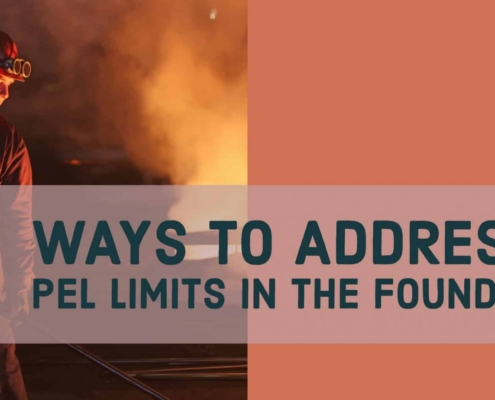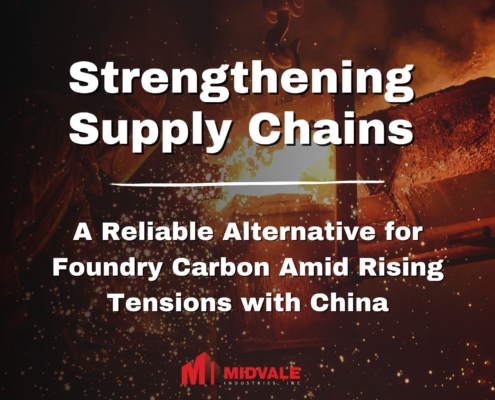 https://midvaleindustries.com/wp-content/uploads/2025/01/Copy-of-carbon-supply-chain.jpg
1260
2240
JBeasley
/wp-content/uploads/2024/06/Midvale-Logo-Web-Black.png
JBeasley2025-01-17 14:34:102026-02-23 09:12:26Strengthening Supply Chains: A Reliable Alternative for Foundry Carbon Amid Rising Tensions with China
https://midvaleindustries.com/wp-content/uploads/2025/01/Copy-of-carbon-supply-chain.jpg
1260
2240
JBeasley
/wp-content/uploads/2024/06/Midvale-Logo-Web-Black.png
JBeasley2025-01-17 14:34:102026-02-23 09:12:26Strengthening Supply Chains: A Reliable Alternative for Foundry Carbon Amid Rising Tensions with ChinaBeing a 3rd generation foundryman and running cleaning rooms, I was introduced to the sales pitch for diamond grinding wheels 20 years ago. Being a stubborn foundryman, I did the typical, “we have always done it this way”.
So, what is changed since that time? For one, it is harder to find employees to hold a grinder 8 hours a day. More automated equipment has been developed to take labor costs out of the cleaning room.
Second, the work environment in a cleaning room is under more and more scrutiny. State and local regulations are requiring breathing air hoods and better dust collection in work areas. The new silica rules also affect the acceptable levels of air contaminants in the cleaning room.
Third, the increased use of diamond wheels in many industries aside from foundries has lowered the overall cost structure.
Fourth, resin bonded grinding wheels are reinforced to keep them from breaking or chipping. However, operators can bounce wheels on castings or get them bound in castings that can promote the possibility of a wheel breaking. For automated applications, the changing size of the resin bonded wheel is hard for the auto grinder to compensate for and the machinery doesn’t know how hard or at what pressure breakage could occur at a given time.
Finally, the cost of disposing of industrial waste has increased exponentially over the last 10-20 years depending on your local options.
Why look at diamond grinding wheels now?
Safety
The diamond material is electrostatically plated onto a steel shape that will not break under normal pressure. The chance of a wheel breaking or exploding is almost zero.
Work Environment
When using a resin bonded grinding wheel, an operator switches wheels out when the previous one is “used up” or physically gone. So where did all of the abrasive, resin, and fiberglass go…into the air, dust collector, and onto everything in the cleaning room. Then the debris has to be collected and disposed of; many times as hazardous waste. Every pound of the resin grinding wheel has to depart as waste.
With a diamond wheel, only the actual material ground off (iron or steel) is introduced into the environment. Since a diamond wheel can last 10 times longer than a resin wheel, the amount of abrasive is small and there is no resin or fiberglass.
Increased Productivity
Since a diamond wheel is made of diamond abrasive particles, the removal rate is very consistent. Additionally, diamond wheels run at higher rpms than resin wheels, so more energy is available to remove excess material faster. With a resin grinding wheel, the abrasive has to break lose in order to cut within the next layer. Since the diamond wheel is one layer and the dimension of the wheel does not change, the operator does not have to apply as much pressure or bounce the wheel to get fresh abrasive. This can significantly reduce operator fatigue and increase productivity.
Overall Cost Savings
The grinding of castings in a cleaning room only adds enough value to make the castings salable. Any cost savings in labor, materials or productivity typically drops straight to the bottom line. The use of diamond grinding wheels is a stark difference from using resin coated grinding wheels. With the diamond wheels, the base shape is coated and recoated as needed. With resin grinding wheels, you buy them over and over again and throw away the waste. If the diamond wheels last 10 times longer, that is 9 times less freight needed and 10 times less waste to haul off. Consider the time and effort spent cleaning work areas for resin wheels and dust collectors being dumped. Without the possibility of grinding wheels breaking or exploding, insurance rates may reduce. With a cleaner work environment, it may be easier to find and retain employees in the cleaning room.
Overall, the time has come for the use of diamond grinding wheels. There are upfront costs for making the grinding wheel shapes to have for recoating. Some grinders may need to be modified or new ones purchased to allow for higher speeds. Plus, there is a time lag between when a grinding wheel is ready for recoating and the time to coat that will have to be managed. But the benefits are beginning to far outweigh the limitations or short term costs.
Written By:
Tim Gilbreath
Foundry Product Manager
Midvale Industries
918-399-3744
Try out Diamond Grinding Wheels and Burrs
Talk to a live representative about trying our diamond grinding wheels and burrs in your foundry cleaning room. Our team is available to provide you with hands on service.
Share This Post
More Like This
 https://midvaleindustries.com/wp-content/uploads/2025/01/Copy-of-carbon-supply-chain.jpg
1260
2240
JBeasley
/wp-content/uploads/2024/06/Midvale-Logo-Web-Black.png
JBeasley2025-01-17 14:34:102026-02-23 09:12:26Strengthening Supply Chains: A Reliable Alternative for Foundry Carbon Amid Rising Tensions with China
https://midvaleindustries.com/wp-content/uploads/2025/01/Copy-of-carbon-supply-chain.jpg
1260
2240
JBeasley
/wp-content/uploads/2024/06/Midvale-Logo-Web-Black.png
JBeasley2025-01-17 14:34:102026-02-23 09:12:26Strengthening Supply Chains: A Reliable Alternative for Foundry Carbon Amid Rising Tensions with China https://midvaleindustries.com/wp-content/uploads/2024/08/chemical-blog-2.jpg
900
1600
Nate Riggins
/wp-content/uploads/2024/06/Midvale-Logo-Web-Black.png
Nate Riggins2022-07-01 14:51:022026-02-23 09:12:29What You Need to Know About the 2022 Chemical Excise Tax
https://midvaleindustries.com/wp-content/uploads/2024/08/chemical-blog-2.jpg
900
1600
Nate Riggins
/wp-content/uploads/2024/06/Midvale-Logo-Web-Black.png
Nate Riggins2022-07-01 14:51:022026-02-23 09:12:29What You Need to Know About the 2022 Chemical Excise Tax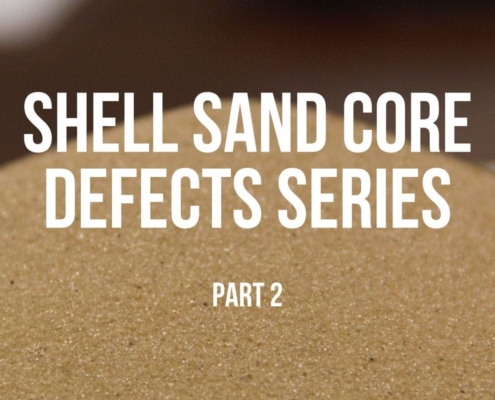 https://midvaleindustries.com/wp-content/uploads/2024/08/Core-Defects-Series-part-2-4.jpg
900
1600
JBeasley
/wp-content/uploads/2024/06/Midvale-Logo-Web-Black.png
JBeasley2021-03-09 16:30:562026-02-23 09:12:30Sand Casting Core Defects Series – Part 2
https://midvaleindustries.com/wp-content/uploads/2024/08/Core-Defects-Series-part-2-4.jpg
900
1600
JBeasley
/wp-content/uploads/2024/06/Midvale-Logo-Web-Black.png
JBeasley2021-03-09 16:30:562026-02-23 09:12:30Sand Casting Core Defects Series – Part 2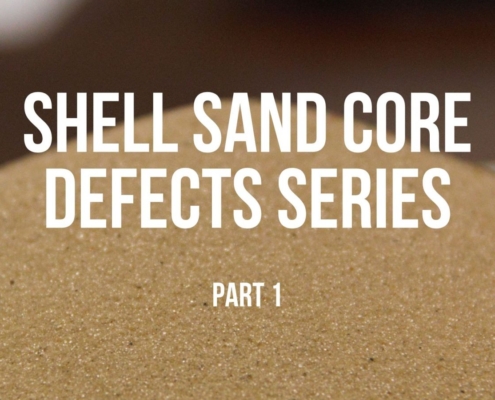 https://midvaleindustries.com/wp-content/uploads/2024/08/Core-Defects-Series-part-1-2.jpg
900
1600
Nate Riggins
/wp-content/uploads/2024/06/Midvale-Logo-Web-Black.png
Nate Riggins2021-01-26 15:04:152026-02-23 09:12:30Sand Casting Core Defects Series – Part 1
https://midvaleindustries.com/wp-content/uploads/2024/08/Core-Defects-Series-part-1-2.jpg
900
1600
Nate Riggins
/wp-content/uploads/2024/06/Midvale-Logo-Web-Black.png
Nate Riggins2021-01-26 15:04:152026-02-23 09:12:30Sand Casting Core Defects Series – Part 1 https://midvaleindustries.com/wp-content/uploads/2024/08/cast-zinc-shot-header-2.png
900
1600
JBeasley
/wp-content/uploads/2024/06/Midvale-Logo-Web-Black.png
JBeasley2020-09-30 16:05:142026-02-23 09:12:31Cast Zinc Shot: Cost Saving Benefits for Shot Blasting
https://midvaleindustries.com/wp-content/uploads/2024/08/cast-zinc-shot-header-2.png
900
1600
JBeasley
/wp-content/uploads/2024/06/Midvale-Logo-Web-Black.png
JBeasley2020-09-30 16:05:142026-02-23 09:12:31Cast Zinc Shot: Cost Saving Benefits for Shot Blasting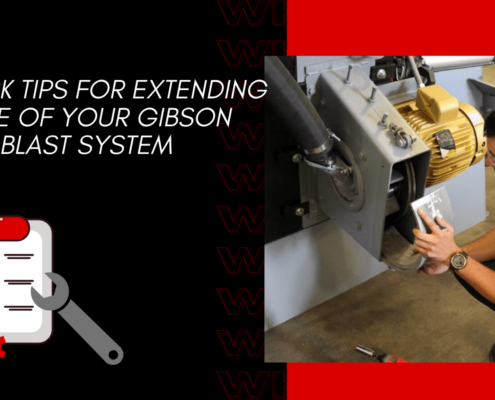 https://midvaleindustries.com/wp-content/uploads/2024/08/wheel-blast-blod-header-text-2.png
900
1600
Nate Riggins
/wp-content/uploads/2024/06/Midvale-Logo-Web-Black.png
Nate Riggins2020-08-14 14:43:402026-02-23 09:12:328 Quick Tips for Extending the Life of Your Gibson Wheel Blast System
https://midvaleindustries.com/wp-content/uploads/2024/08/wheel-blast-blod-header-text-2.png
900
1600
Nate Riggins
/wp-content/uploads/2024/06/Midvale-Logo-Web-Black.png
Nate Riggins2020-08-14 14:43:402026-02-23 09:12:328 Quick Tips for Extending the Life of Your Gibson Wheel Blast System
